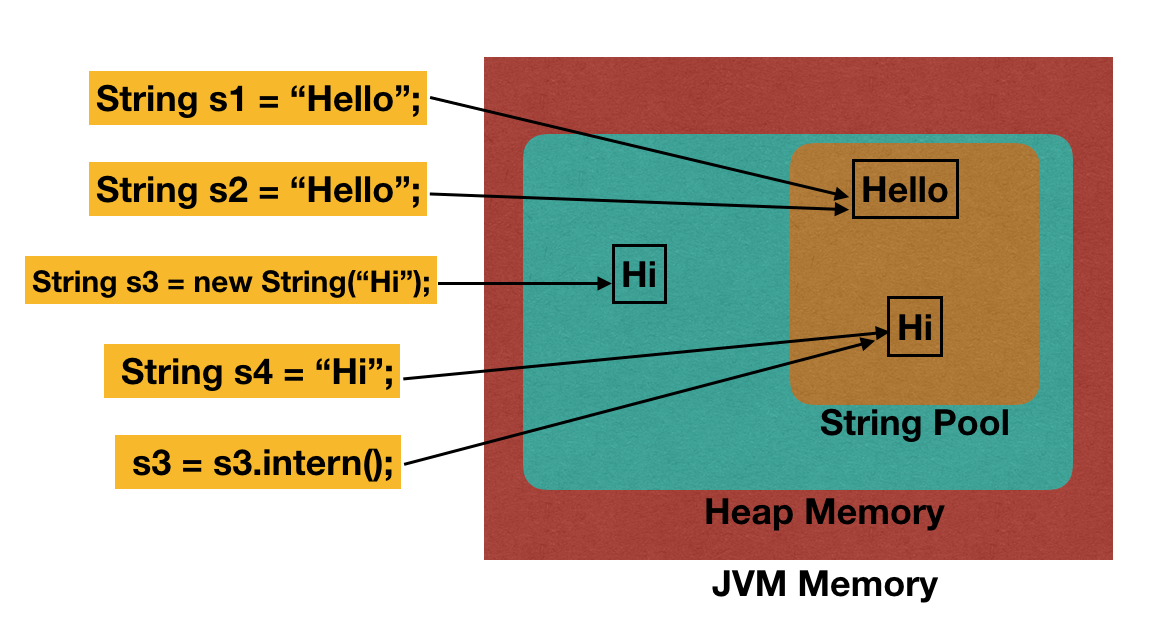Why Are Strings Immutable in Java? Comprehensive Guide for Beginners
Why Are Strings Immutable in Java? Comprehensive Guide for Beginners
Blog Article
Exploring the Benefits of Immutable Strings in Modern Shows Paradigms
In the realm of contemporary programming standards, the idea of unalterable strings stands as a foundation of robust software program growth. By taking on immutable strings, developers can ensure boosted data stability, enhanced thread safety, simplified debugging procedures, raised protection procedures, and effective efficiency optimization.
Boosted Data Stability

By preventing the modification of string objects, immutability gets rid of the threat of unintentional modifications to the information they hold. This not just boosts the safety and security of the details but also boosts the integrity of the code that depends on these strings.
Immutability also supports much safer multithreading environments, as simultaneous accessibility to immutable strings does not present the danger of information corruption via synchronised adjustments. This residential or commercial property streamlines the process of dealing with strings in identical shows situations.
In significance, immutability functions as a protective guard around the information kept within strings, improving their honesty by making sure that when specified, their values stay unchanged throughout the program's implementation.

Enhanced String Security
Immutable strings enhance the thread safety of programs by making sure that when a string item is created, its value can not be modified. This residential property eliminates the danger of concurrent threads trying to customize the exact same string concurrently, which can cause data corruption or inconsistent states in the program - Why are strings immutable in Java?. In a multi-threaded atmosphere, where multiple threads accessibility and control information at the same time, the immutability of strings gives a degree of security by guaranteeing that the information stays the same throughout its lifecycle
Simplified Debugging Processes
Offered the improved string safety facilitated by unalterable strings, a substantial advantage emerges in the world of streamlined debugging processes. Immutable strings, when developed, can not be altered, making it less complicated to trace the circulation of information and identify the resource of insects in a program. This immutability ensures that strings continue to be constant throughout the implementation of the program, decreasing the possibility of unexpected adjustments that might bring about mistakes.
When debugging with mutable strings, developers often come across concerns where a string's worth is customized inadvertently, making it testing to determine the origin cause of a pest. Nevertheless, with immutable strings, the data stays unmodified, enabling developers to concentrate on examining the real logic of the code instead than finding where and when a string was customized improperly.
In addition, immutable strings streamline the debugging procedure by making it possible for simpler reproduction of insects. Since immutable strings do not alter state, developers can recreate and research insects better, bring about quicker recognition and resolution of problems within the codebase. This streamlined debugging operations ultimately contributes to greater software program top quality and enhanced total advancement efficiency.

Increased Security Procedures
Enhancing information why not look here protection and strengthening system integrity, the utilization of immutable strings in software program applications adds significantly to increased safety procedures. Immutable strings also play an essential role in protecting against typical safety and security vulnerabilities such as buffer overflows and SQL injection attacks, as efforts to manipulate string data at runtime are naturally limited.
Furthermore, the immutability of strings boosts the predictability of program behavior, making it less complicated to confirm inputs and avoid unexpected changes that useful site could endanger security. This predictability simplifies the process of auditing and validating code, making it possible for designers to recognize possible safety and security technicalities much more successfully. In general, integrating immutable strings into software development practices not only improves the effectiveness and reliability of applications however likewise reinforces their resilience versus protection hazards.
Efficient Efficiency Optimization
Structure upon the structure of enhanced security measures attained via the application of unalterable strings, an essential aspect to take into consideration in software application advancement is efficient performance optimization. When dealing with mutable strings, operations like concatenation or substring production typically cause the production of brand-new string items, causing memory overhead and increased handling time. However, with unalterable strings, these procedures can be maximized to improve performance. By permitting strings to remain unchangeable and consistent, immutable strings help with much better memory administration and caching opportunities, eventually improving the overall performance of the software.
Since my company unalterable strings can not be changed when produced, they can be shared across threads without the danger of unforeseen changes, lowering the demand for synchronization devices and enhancing concurrency. Immutable strings simplify debugging procedures as programmers can trust that a string's worth will continue to be consistent throughout the program's execution, removing prospective errors caused by mutable state changes.
Conclusion
In conclusion, the benefits of using unalterable strings in modern-day programs standards can not be overstated. Enhanced data integrity, enhanced string safety and security, streamlined debugging processes, boosted security procedures, and effective efficiency optimization all contribute to the general efficiency of programming jobs. By incorporating immutable strings right into shows methods, designers can profit from an extra durable and trusted codebase.
Immutability, an essential function of strings in programs languages such as Java and Python, makes certain that as soon as a string object is produced, it can not be changed or customized.Unalterable strings boost the string safety and security of programs by guaranteeing that once a string item is developed, its value can not be changed. Immutable strings additionally play an important role in protecting against typical safety susceptabilities such as barrier overflows and SQL shot attacks, as attempts to adjust string information at runtime are inherently limited.
By allowing strings to remain consistent and stable, unalterable strings help with better memory monitoring and caching chances, ultimately boosting the overall efficiency of the software application.
Unalterable strings simplify debugging processes as programmers can trust that a string's worth will certainly remain regular throughout the program's implementation, getting rid of possible mistakes caused by mutable state modifications.
Report this page